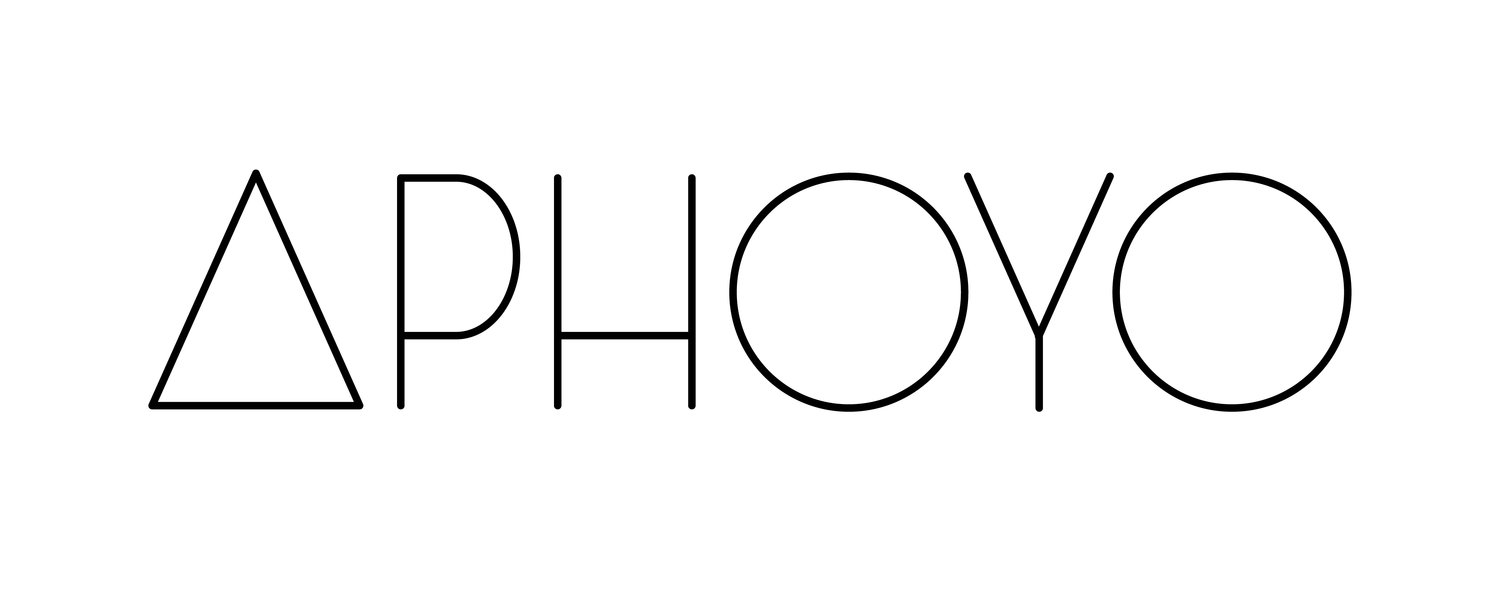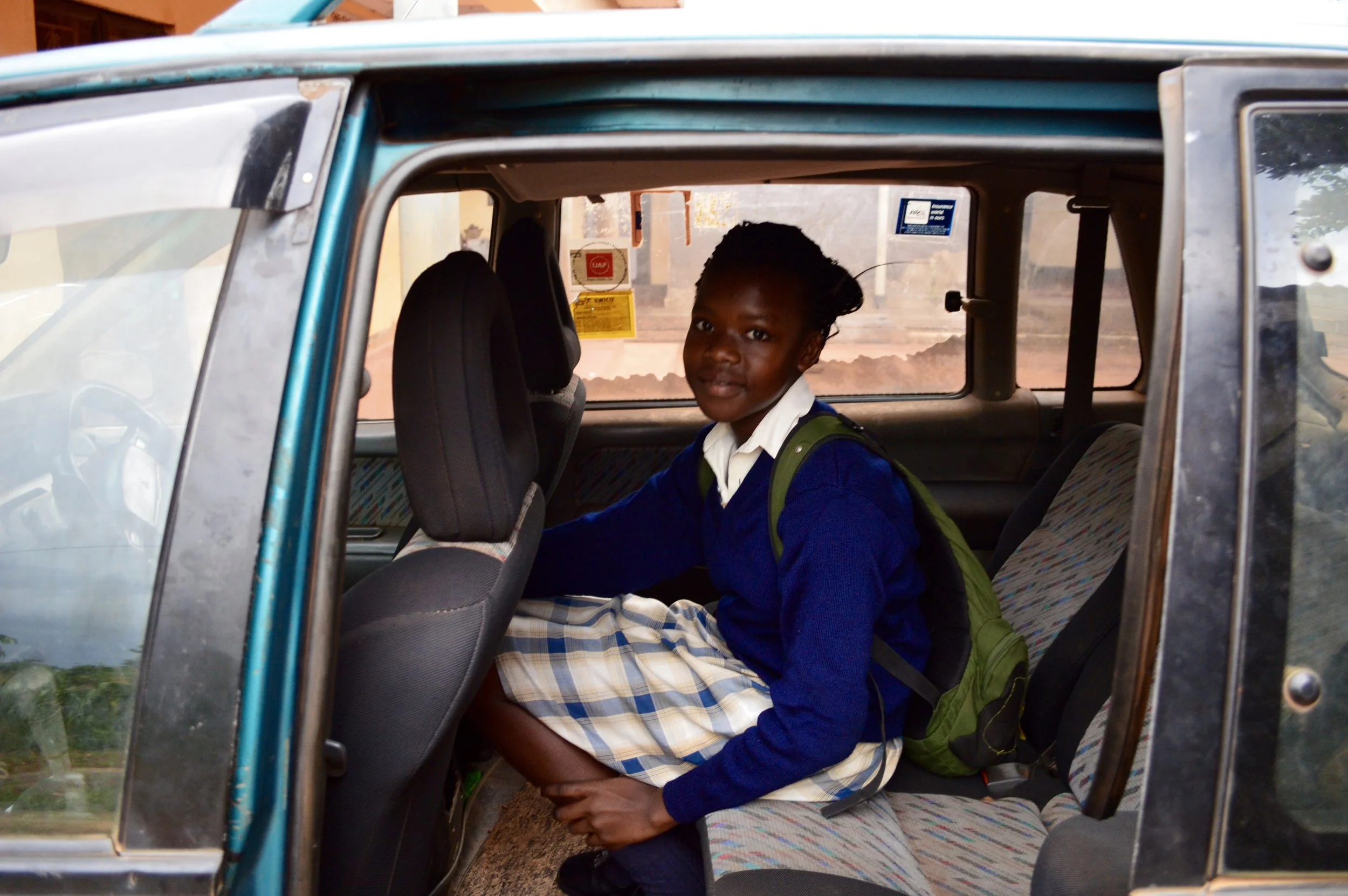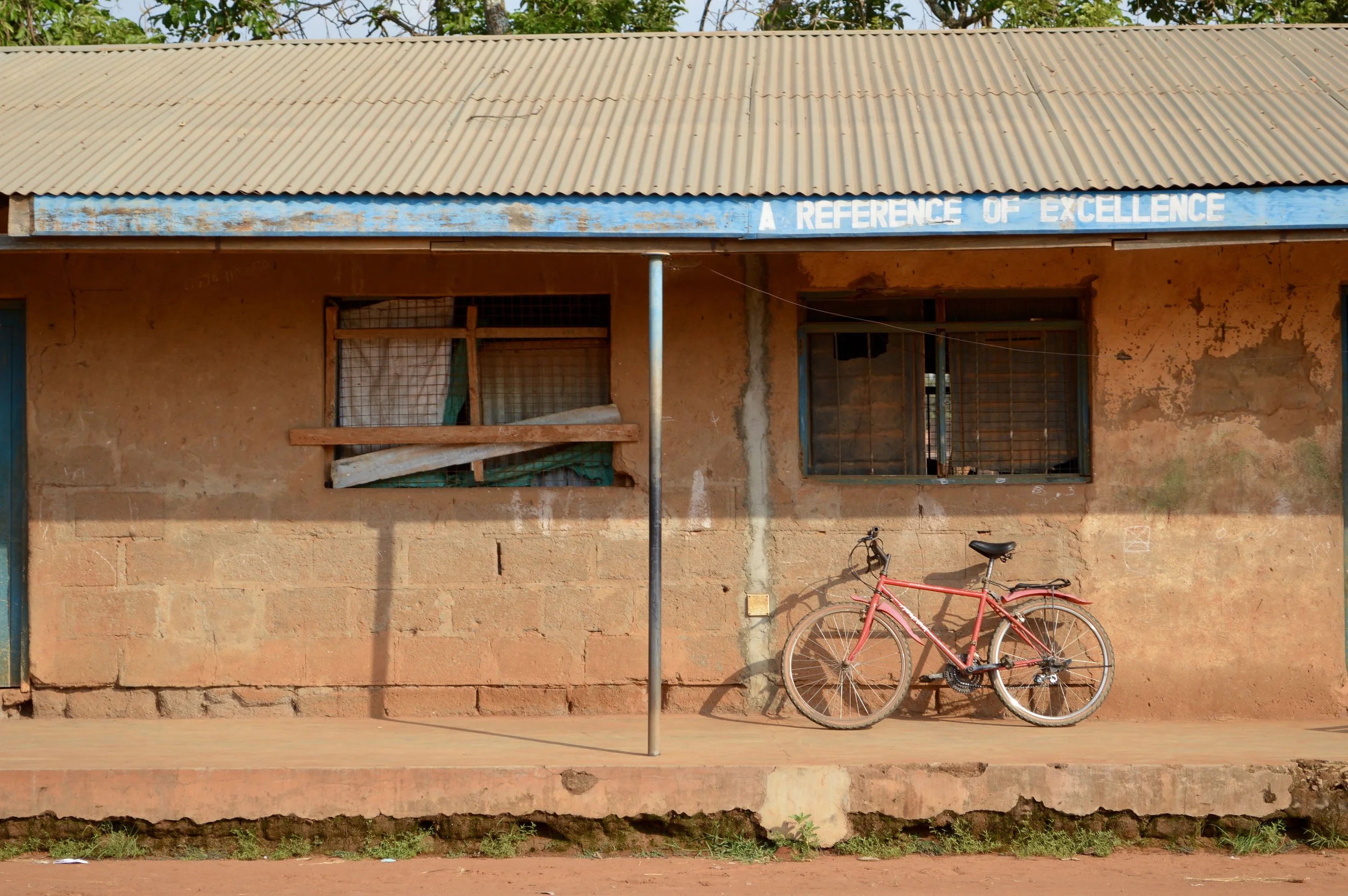To catch photos of our students’ everyday life, I decided to rise early one Gulu morning and follow Nicole to school. I chose Nicole since she knows me best and is generally used to the camera, though she is not the preening 9-year-old she once was. I wake up before she does, get ready by flashlight and come out to take photos of her eating breakfast. I feel like a photojournalist; I desperately wanted to be a journalist in the seventh grade so I embrace my role and click away trying to catch any image that might be meaningful.
t’s not so unusual, to photograph this particular family or to be Mzungu (white) in this particular home. Even when I step outside and catch a few images of Beifeild on her way to school as she passes our house, the click of my camera only warrants a giggle or two from the nearby neighbor girls. It changes though, rather quickly.
We get into Peter’s car and drive perhaps 7 minutes to school, a few kilometers. The school is well kept and pretty, bustling as all schools are when the students arrive (now 20 minutes past the official school arrival time seems to be when most people, including a few teachers are pulling up). Peter asks the headmaster for permission for my images and I snap about a dozen of Nicole walking to class. Then I head out front to take a few of the entrance.
A woman tisks at me as I click-click-click, trying to catch an image unobstructed by a car, I look over to her wagging finger of disapproval. "I have permission!.. I have permission!” I tell her, but my Acholi is limited to a handful of greetings and the word for prayer, so I'm not sure much gets through as she moves on. I take a few more shots quickly and smile nervously at the guard, he nods and smiles, but I don't feel alleviated.
It's not the first time someone has drawn such a conclusion about me here. In 2014, I had a woman follow me and warn our Aphoyo students to not let me shoot, "She will take your pictures and use them for her own gain!!" Only Christine stopped her with chastising words and the truth in Acholi.
I don't blame them. It must have happened many times. Adorable dark and dirty faces are compelling to the American pocket. And it's not only swindlers who have done something wrong here, surely even well-meaning westerners have photographed these faces and told them they would do something to change circumstances for them back at home. But the memories fade with the jet lag, the bustle of western life starts up again. People forget the images stored on their hard drives.
I think about this as I walk into town. I have decided not to stay long at Nicole's school. I remember previous experiences at schools: little to no educational work got done while I was there. I am a novelty. No, best to visit schools during break times. Im affirmed in my decision as I pass a classroom, above the chatter of settling in I hear from the window, "Mono!" "Mzungu?" The Acholi and African word for "white". I past Juliet's school on my walk to town, but decide I better not photograph it. Nervous for what others may say.
I keep walking. It's a busy morning, teachers on bicycles and children walking in groups. Boda boda (motorcycle taxi) drivers pull up slowly to school gates and uniformed little ones climb down to walk in. I even notice some children walking the way I teach my students in the States: their arms folded, a silent mouth, only breaking to smile back at me as they walk on.
I am the only white person out in this part of town at this time. I am among the bakery delivery man and the road worker on his way to his site. They look at me, but in a different way this morning, less a novelty, more a nuisance. Women look me up and down, assessing me. I glance down at my outfit: I am covered from head to toe, it can't be immodesty that they are judging me for. I wonder if they think my camera is for my own gain. Or is it that my very skin tone is offensive this early in the morning? I walk to the coffee shop we frequent. I am too early.
I wait for a while before I decide will be too long before the banks and the coffee are open and available. I cross the street, barter and take a boda boda home.


